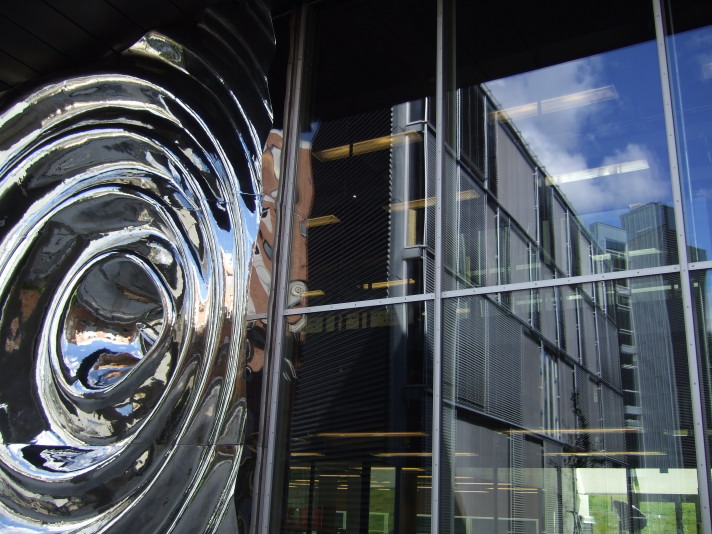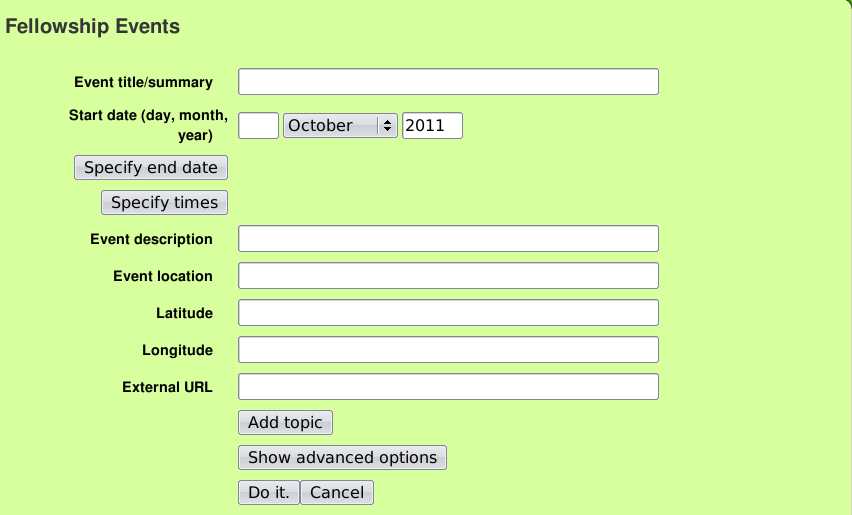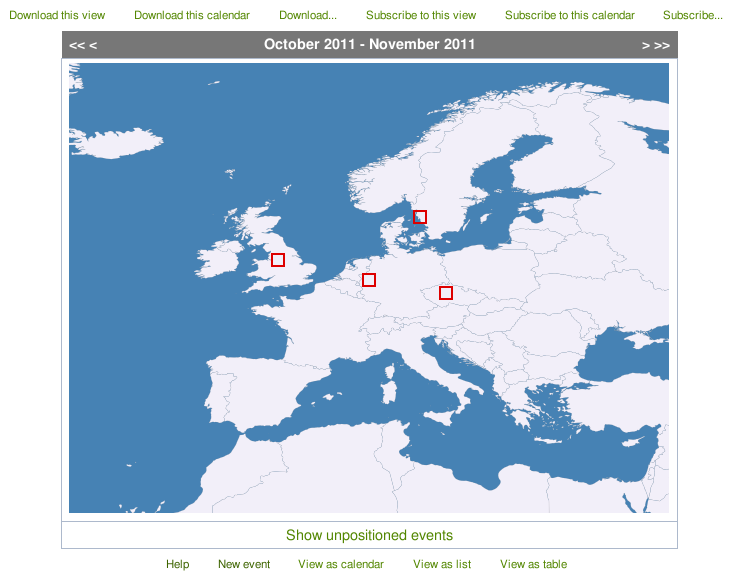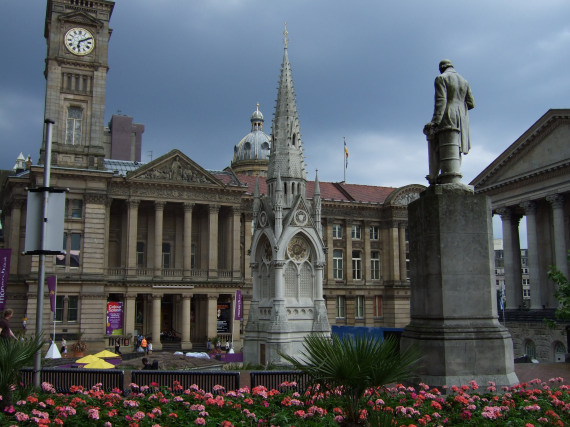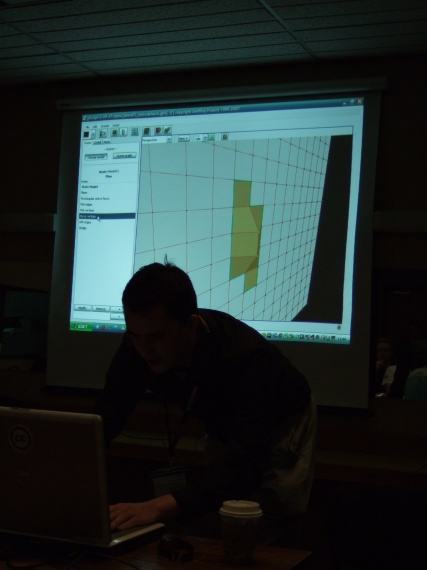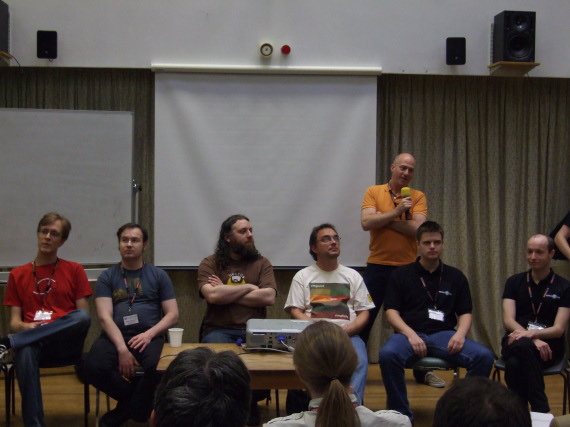The Academic Challenge: Ideas, Patents, Openness and Knowledge
Thursday, April 18th, 2013I recently had reason to respond to an article posted by the head of my former employer, the Rector of the University of Oslo, about an initiative to persuade students to come up with ideas for commercialisation to solve the urban challenges of the city of Oslo. In the article, the Rector brought up an “inspiring example” of such academic commercialisation: a company selling a security solution to the finance industry, possibly based on “an idea” originating in a student project and patented as part of the subsequent commercialisation strategy leading to the founding of that company.
My response made the following points:
- Patents stand counter to the academic principle of the dissemination of unencumbered knowledge, where people may come and learn, then make use of their new knowledge, skills and expertise. Universities are there to teach people and to undertake research without restricting how people in their own organisations and in other organisations may use knowledge and thus perform those activities themselves. Patents also act against the independent discovery and use of knowledge in a startlingly unethical fashion: people can be prevented from taking advantage of their own discoveries by completely unknown and inscrutable “rights holders”.
- Where patents get baked into attempts at commercialisation, not only does the existence of such patents have a “chilling effect” on others working in a particular field, but even with such patents starting life in the custody of the most responsible and benign custodians, financial adversity or other circumstances could lead to those patents being used aggressively to stifle competition and to intimidate others working in the same field.
- It is all very well claiming to support Open Access (particularly when snobbery persists about which journals one publishes in, and when a single paper in a “big name” journal will change people’s attitudes to the very same work whose aspects were already exposed without such recognition in other less well-known publications), but encouraging people to patent research at the same time is like giving with one hand while taking with the other.
- Research, development and “innovation” happens more efficiently when people don’t have to negotiate to be able to access and make use of knowledge. For those of us in the Free Software community who have seen how real progress can be made when resources – in our case, software – are freely usable by others through explicit and generous licensing, this is not news. But for others, this is a complete change of perspective that requires them to question their assumptions about the way society currently rewards the production of new work and to question the optimality of the system that grants such rewards.
On the one hand, I am grateful for the Rector’s response, but I feel somewhat disappointed with its substance. I must admit that the Rector is not the first person to favour the term “innovation”, but by now the term has surely lost all meaning and is used by every party to mean what they want it to mean, to be as broad or as narrow as they wish it to be, to be equivalent to work associated with various incentives such as patents, or to be a softer and more photogenic term than “invention” whose own usage may be contentious and even more intertwined with patents and specific kinds of legal instruments.
But looking beyond my terminological grumble, I remain unsatisfied:
- The Rector insists that openness should be the basis of the university’s activities. I agree, but what about freedoms? Just as the term “open source” is widely misunderstood and misused, being taken to mean that “you can look inside the box if you want (but don’t touch)” or “we will tell you what we do (but don’t request the details or attempt to do the same yourself)”, there is a gulf between openly accessible knowledge and freely usable knowledge. Should we not commit to upholding freedoms as well?
- The assertion is made that in some cases, commercialisation may be the way innovations are made available to society. I don’t dispute that sometimes you need to find an interested and motivated organisation to drive adoption of new technology or new solutions, but I do dispute that society should grant monopolies on entire fields of endeavour to organisations wishing to invest in such opportunities. Monopolies, whether state-granted or produced by the market, can have a very high cost to society. Is it not right to acknowledge such costs and to seek more equitable ways of delivering research to a wider audience?
- Even if the Rector’s mention of an “inspiring example” had upheld the openness he espouses and had explicitly mentioned the existence of patents, is it ethical to erect a fence around a piece of research and to appoint someone as the gatekeeper even if you do bother to mention that this has been done?
Commercialisation in academia is nothing new. The university where I took my degree had a research park even when I started my studies there, and that was quite a few years ago, and the general topic has been under scrutiny for quite some time. When I applied for a university place, the politics of the era in question were dominated by notions of competition, competitiveness, market-driven reform, league tables and rankings, with schools and hospitals being rated and ranked in a misguided and/or divisive exercise to improve and/or demolish the supposedly worst-performing instances of each kind.
Metrics of “research excellence” are nothing new, either. It seemed to me that some university departments were obsessed with the idea of research rankings. I recall at least one occasion during the various tours of university departments of being asked which other universities us potential applicants were considering, only to have the appointed tour leaders consult the rankings and make an on-the-spot comparison, although I also recall that when the top-ranked universities were named such comparison exercises drew to a swift close. Naturally, the best research departments didn’t need to indulge in such exercises of arguable inadequacy.
The Real Challenge for Students
But does the quality of research have anything to do with the quality of an institution for the average student? Furthermore, does the scale of commercialisation of research in a teaching institution have anything to do with the quality of research? And anyway, why should students care about commercialisation at all?
My own experiences tell me that prospective students would do better to pay attention to reliable indicators of teaching quality than to research ratings. Many of them will end up having relatively little exposure to the research activities of an institution, and even if researchers actively attempt to engage students with “real world” examples from their own work, one can argue that this may not be completely desirable if such examples incorporate the kind of encumbered knowledge featured in the “inspiring example” provided by the Rector. It is, however, more likely that researchers would rather be doing research than teaching and will be less engaging, less available for consultation, and just less suited to providing high quality tuition than the teaching staff in a decent teaching institution. Who cares if a department is doing “cutting edge” research if all you see as a student is a bored and distracted lecturer having to be dragged out of the lab for an hour once or twice a week?
Even the idea that students will go on to do research after their undergraduate degree in the same institution, presumably by forging contacts with researchers in teaching positions, should be questioned. People are encouraged to move around in academia, arguably to an extent that most well-qualified people would find intolerable even in today’s celebrated/infamous “global economy”. That undergraduates would need to relate to the research of their current institution, let alone any commercialisation activity, is in many respects rather wishful thinking. In my entire undergraduate era I never once had any dealings or even awareness of what went on in the university research park: it was just a block of the campus on the map without any relevance and might have well been a large, empty car park for all the influence it had on my university education.
My advice to undergraduates is to seek out the institutions that care about high-quality teaching, whose educators are motivated and whose courses are recognised for providing the right kind of education for the career you want to pursue. Not having been a postgraduate as such, I don’t feel comfortable giving advice about which criteria might be more important than others, although I will say that you should seek out the institutions who provide a safe, supportive, properly-run and properly-supervised working environment for their researchers and all their employees.
The Circus of Commercialisation
Lots of money is being made in licensing and litigation around commercial and commercialised research, and with large sums being transferred as the result of legal rulings and settlements, it is not particularly difficult to see why universities want in on “the action”. In some countries, with private money and operational revenue ostensibly being the primary source of income for universities, one can almost understand the temptation of such institutions to nail down every piece of work and aggressively squeeze every last revenue-earning drop of potential each work may have, if only because a few bad years of ordinary revenue might lead to the demise of an institution or a substantial curtailment of its reputation and influence. For such institutions, perhaps the only barrier being broken voluntarily is an ethical one: whether they should be appointing themselves as the gatekeepers to knowledge and still calling themselves places of learning.
In other countries, public money props up the education sector, in some nations to the extent that students pay nominal fees and experience as close to a free higher education as one can reasonably expect. Although one might argue that this also puts universities at the mercy of an ungenerous public purse and that other sources of income should be secured to allow such institutions to enhance their offerings and maintain their facilities, such commercial activities deservedly attract accusations of a gradual privatisation of higher education (together with the threat of the introduction of significant fees for students and thus an increased inequality between rich and poor), of neglecting non-applied research and commercially unattractive areas of research, and of taking money from taxpayers whilst denying them the benefit of how it was spent.
Commercialisation is undoubtedly used to help universities appear “relevant” to the general public and to industry, especially if large numbers can be made to appear next to items such as “patents” and “spin-offs” in reports made available to the press and to policy makers and if everyone unquestioningly accepts those things and the large numbers of them as being good things (which is far from being a widely-accepted truth, despite the best efforts of self-serving, high-profile, semi-celebrity advocates of patent proliferation), but the influence of such exercises can be damaging to things like Free Software, not merely creating obstacles for the sharing of knowledge but also creating a culture that opposes the principles of sharing and genuine knowledge exchange that Free Software facilitates and encourages.
Indeed, the Free Software movement and its peers provide a fairer and more sustainable model for the widespread distribution and further development of research than the continuing drive for the commercialisation and monetisation of academia. Free Software developers give each other explicit rights to their work and do not demand that others constantly have to ask permission to do the most elementary things with it. In contrast, commercialisation imposes barriers between researchers and their natural collaborators in the form of obligations to an institution’s “intellectual property” or “technology transfer” office, demanding that every work be considered for licensing and revenue generation (by a group of people who may well be neither qualified nor legitimately entitled to decide). Where Free Software emphasises generosity, commercialisation emphasises control.
Universities, whose role it is to provide universal access to usable knowledge, particularly when funded with public money, should be looking to support and even emulate Free Software practitioners. Instead, by pursuing an agenda of pervasive commercialisation, they risk at the very least a stifling of collaboration and the sharing of knowledge; at worst, such an agenda may corrupt the academic activity completely.
Can universities resist the temptations and distractions of commercialisation and focus on delivering a high-quality experience for students and researchers? That is the real ethical challenge.

